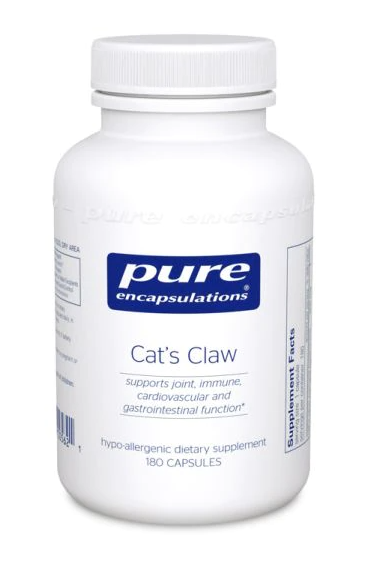Cat's claw, also known as Uncaria tomentosa, has been used traditionally in Peru for over 2,000 years. Alkaloids, phenols, sterols and glycosides comprise some of the naturally occurring constituents of this herb. The effects of these compounds are far-reaching and include support for joint function, gastric and intestinal health, cellular protection and immune activity. In a 52-week, randomized, double blind trial, cat's claw extract promoted joint comfort in volunteers. A 4-week study also suggests that cat's claw has the ability to promote joint comfort, in part by maintaining healthy prostaglandin metabolism. Other mechanisms of action that may account for these effects include protecting from oxidative stress and supporting healthy cytokine production. Studies involving cultured gastric epithelial cells suggest that cat's claw may provide important antioxidant protection for gut health. Cat's claw alkaloids have been specifically associated with enhancing immune system cell function, including phagocytosis and macrophage activity. Cardiovascular support properties include support for healthy vascular and platelet function. Preliminary evidence suggests that cat's claw may provide protective support for healthy breast cell function. Cat's claw may be contraindicated for individuals who are taking blood thinning or antihypertensive medications due to a potential synergistic effect.



